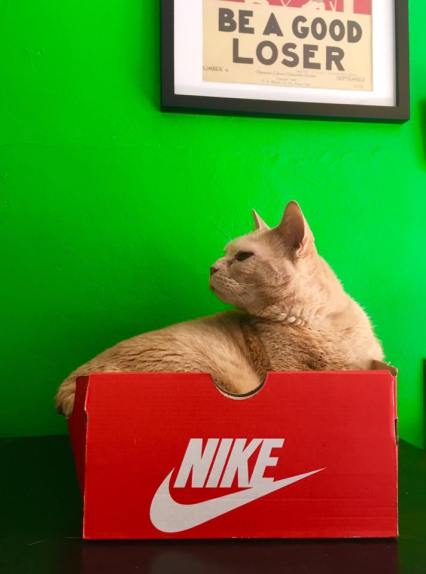
This is my cat, Buff Buff. He’s in a box!
Is, with just its two lovely letters, seems to confuse many people as they go about capitalizing chapter titles, article titles, subtitles, and so forth.
Should is be capitalized in titles? Let’s find out.
(Okay, if you’re looking for the quick answer, it’s: yes, you should capitalize is in titles. If you want to discover why it should be capitalized, read on. You can also find a full review of how to write titles here.)
First, let’s review which words get capitalized in titles (according to The Chicago Manual of Style).
- First and last words
- Nouns
- Verbs
- Pronouns
- Adjectives
- Adverbs
Is (like pillage, splatter, and giggle) is a verb. So, even though it’s a teeny tiny verb, it still gets the full capitalization treatment.
Let’s check out this example:
The Cat Is in the Box
The verb in this title is is, so it gets capitalized.

Click here: https://www.dotanddashllc.com/newsletter-signup
Here’s another:
The Cat Is in the Box, and He Looks Confused
Is and Looks are both verbs in this title. They both get capitalized.
And, when in doubt, you can always cheat. There is a handy dandy online tool named Capitalize My Title that will do the work for you. Simply type in the words of your title, and—voilà—it formats it for you in whichever style you wish.
Erin Servais is the founder of Dot and Dash, LLC, an author-services company focusing on women writers and offering a range of book editing, author coaching, and social media packages.
Sign up for the Dot and Dash newsletter to get writing tips and tricks and exclusive deals.
Follow Dot and Dash on social media.
Twitter: @GrammarParty
Instagram: @dot_and_dash_llc
Facebook: facebook.com/dotanddashllc
Pinterest: www.pinterest.com/dotanddashllc


